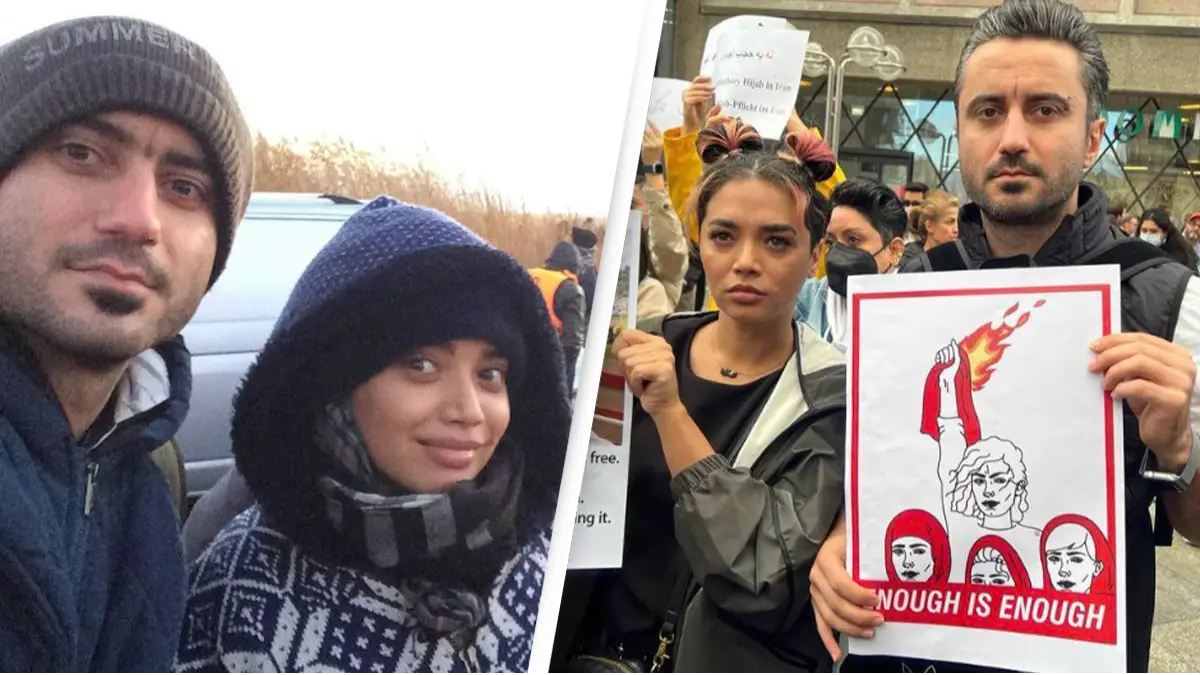
WARNING - Distressing content
On a cold and rainy night on Turkey’s west coast, two people were among a crowd of more than a hundred, preparing to board one of two vessels.
Couple Leila Eftetahi and Mohammad Ali Motamedi had made the decision to leave their home in Iran. In doing so, they became two of the many, many people to have made the incredibly dangerous journey across the Mediterranean in search of a better life.
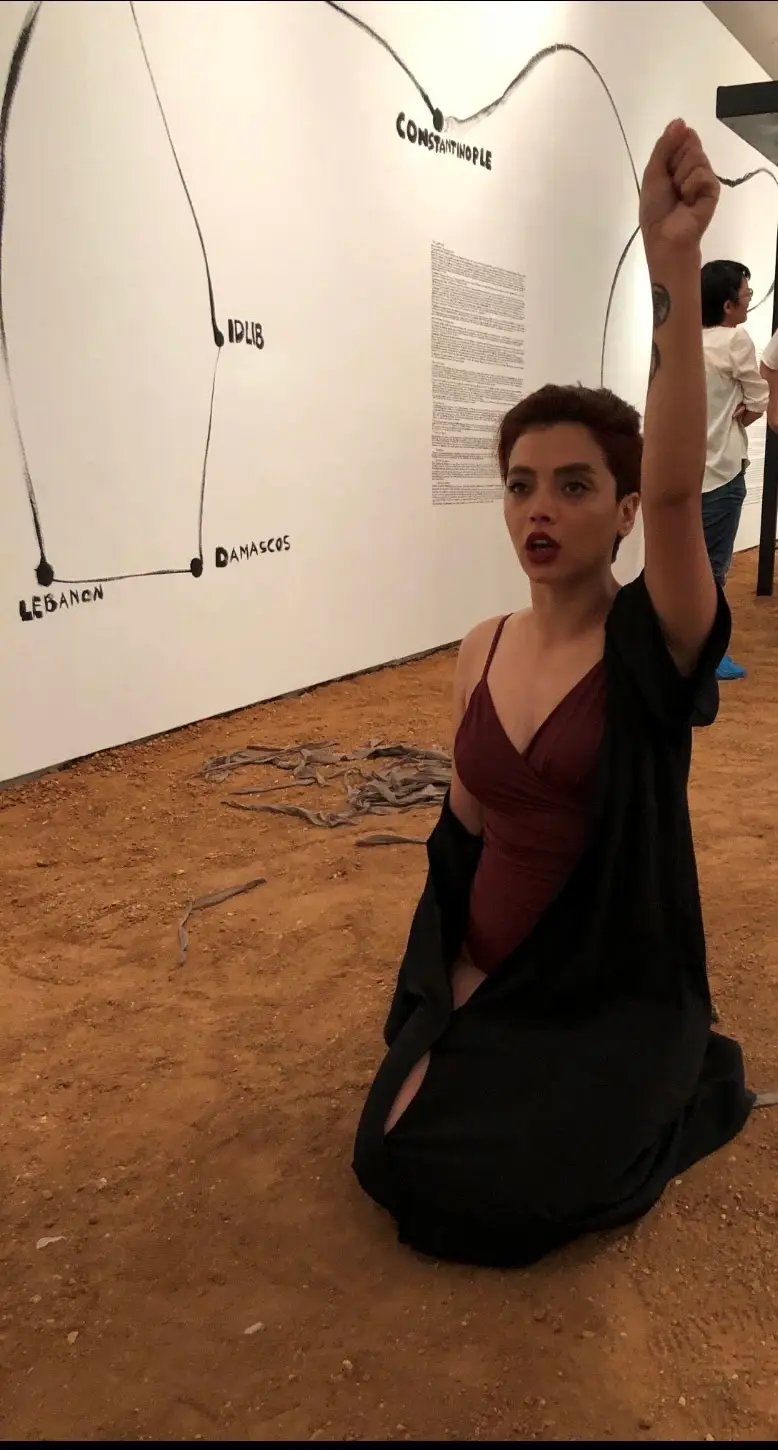
Advert
While not an active warzone, the draconian rule of the Islamic Republic has forced many people to flee the country.
Women are targeted with strict rules about what they should wear when out in public, as well as what they can and can’t do. The regime doles out severe punishments, including whipping and hanging, to people who break the rules.
Leila met and fell in love with her husband, Mohammad, who was working as a DJ. The pair planned to marry, but in Iran, marriage requires permission from the bride’s father before it can go ahead. Leila’s father had refused permission, and despite appealing to the court, her father’s decision was upheld.
Mohammad had previously been arrested for drinking alcohol, which is also illegal in Iran.
Leila said: “The first time he was arrested by police [was] when he was back from one party [where] he was drunk, and alcohol is not legal in Iran. The judge will decide that they beat you like 82 times, there are three different types of beating in Iran, it’s the hardest one.”
Leila shared an image of Mohammad's injuries, though UNILAD has chosen to censor the image due to its distressing nature.
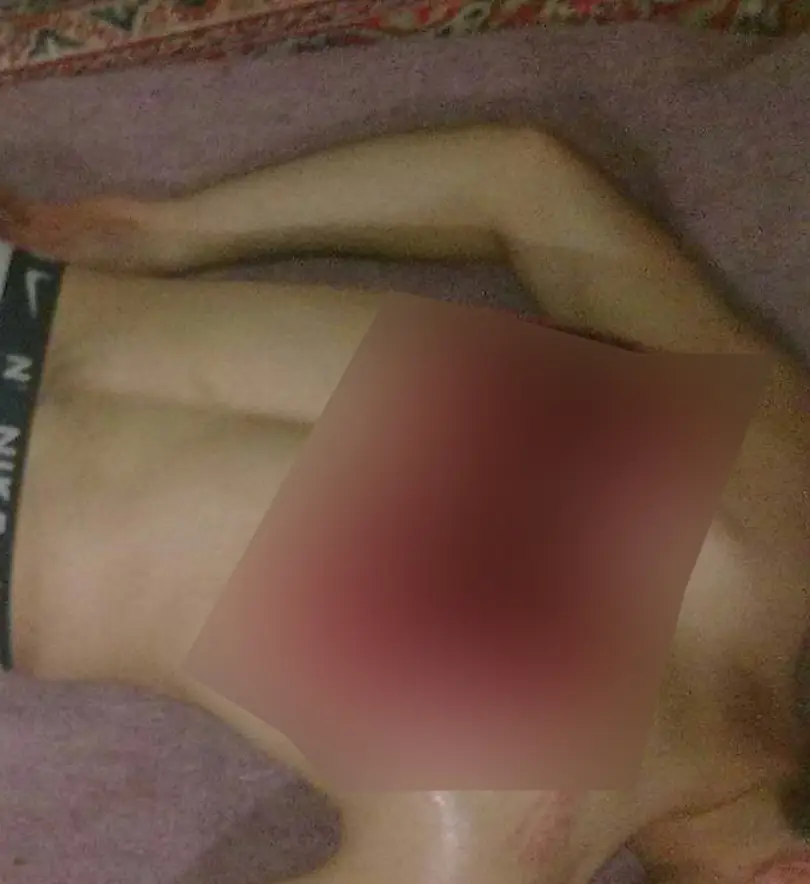
Mohammad had gone to university to train for a professional qualification, which could have helped him gain permission to marry Leila.
However, things got much worse when Mohammad was arrested again. Though sober, he and friends had been at a party and officials falsely wrote down that he had been drinking. The second ‘offence’ meant that he had reached a terrifying tipping point.
Leila explained: “When you are caught three times for alcohol in Iran that you are drunk, they can hang you. So that was the first biggest problem. The second was that they sent the letter to the university and university didn’t allow him to continue his education.”
Finally, in 2015, the pair decided to leave Iran, but there was a problem. In Iran, unmarried women require their father’s permission to leave the country. When a woman marries, this transfers to her husband. Needless to say that permission was not forthcoming, so if Leila wanted to leave the country with Mohammad she would have to do so illegally.
The pair made their way to Turkey, where they were able to engage smugglers on the country’s west coast. Boats set off from Turkey with the aim of landing on one of the many Greek islands that pepper the Aegean Sea, and which can be very close to the Turkish coast.
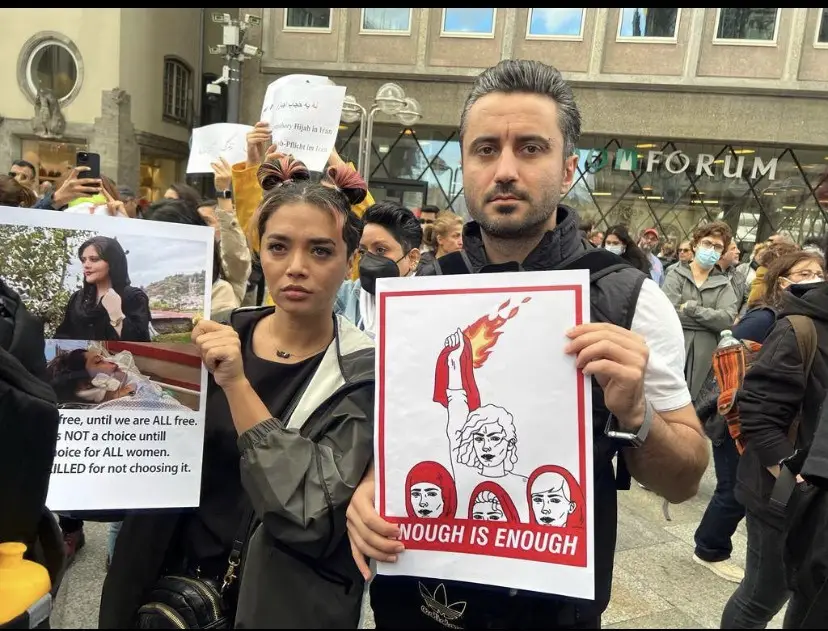
But before they could get on a boat, they first faced a debilitating limbo waiting for the chance to make the journey.
Leila said: “We were two months on the way from Turkey to Athens, and without any good eating. The smuggler kept us in very small places and said if you come out from this place and police catch you I cannot do anything for you. He gave us just one meal a day, and that was just cheese and bread.
“I lost like 10 kilos on the way from Turkey to Greece. I am now 50kg and at that time I was 40kg. When a person that is just 50kg lost 10 kilos in one month, then my body doesn't accept any food.”
Not only that, but they had to wait in a perpetual state of readiness, as a smuggler would come and tell them with just minutes notice that today was the day.
Leila said: “Every single night the smuggler set us to be ready, we'll go this night. Every night I wore all my clothes, even my shoes, because he came in one minute.
“He doesn't answer the phone. At six o'clock morning next day we understood that he will not come. That process was like one month and half, every night you're waiting.
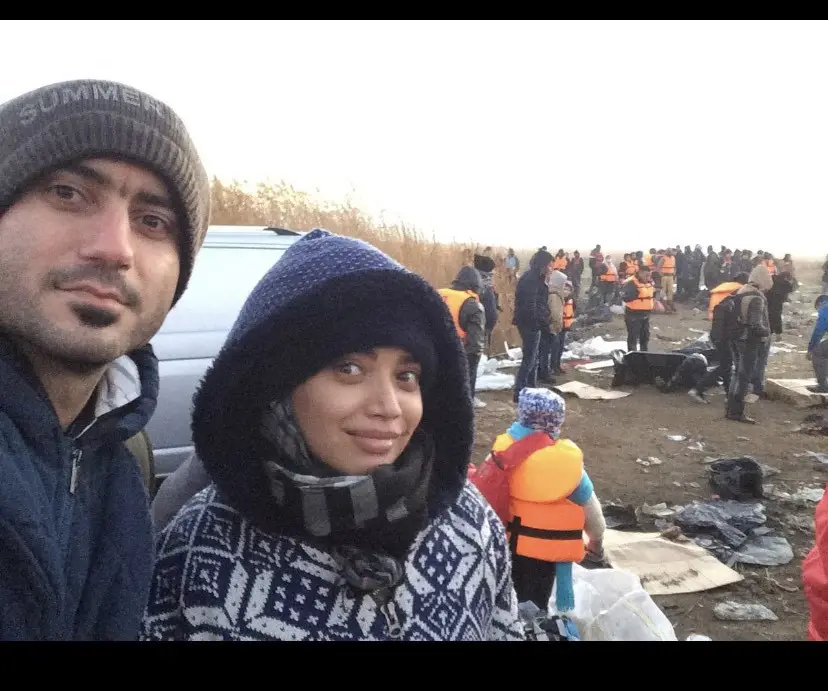
“We were not sure that we would arrive in Greece. We were really tired of the situation.”
She added: “With all of things that happen you have every moment a lot of stress. If police come, if the smugglers stop you leaving and ask for more money.
“The people that you travel with, you don't know them, who are they and what they could do. You have to take care of yourself.”
Eventually, after a number of failed attempts, Leila and Mohammad became two of around 60 people packed onto an overcrowded boat, one of two attempting the journey that night.
Leila said: “They sent us at 10 o'clock at night and it was a rainy night. We were with two small boats with 60 people in each boat, and it was raining.
“There was a chill that night, the water came more to the beach.”
The two boats set out into the darkness.
Leila said: “The things that kept us alive is because of one small kid with us, like a baby. The mother brought two bottles of water for the baby, and we could take out the water from the boat with this bottle. That was the thing that helped us, so that the boat will not be full of water.”
They arrived at an island, which they later found out to be called Farmakonisi, a Greek-governed island located less than ten miles from the Turkish coast.
Tragically, the worst was yet to come.
Leila described the arrival: “We arrive to this island, Farmakonisi, if you see on the on the map it’s like a mountain of islands. We had an accident, and the young men that were with us helped people to [get] out.
“But the boat that was behind us, the motor had an accident, it started a fire so people couldn’t help each other, and 15 people died.
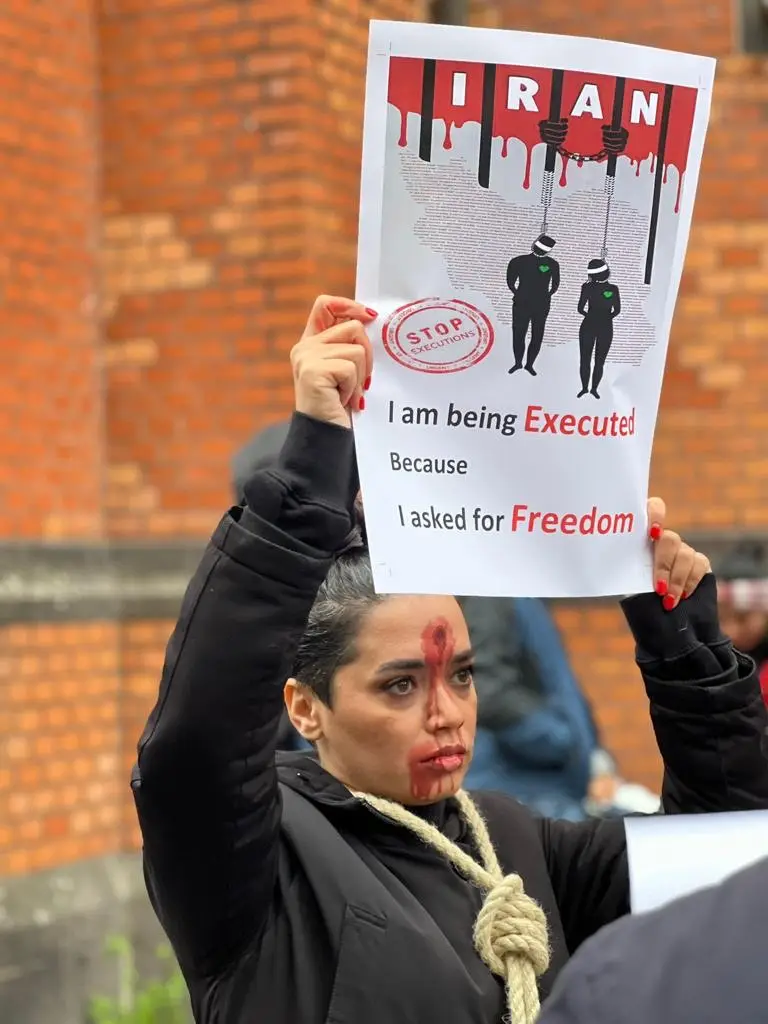
“Sometimes I think how easily I speak about it, but then I think back to how many days I worked with a psychotherapist in Greece. I’ve never gone to the sea in Greece.
“Every night I had a very bad dream, just crying, waking up screaming.”
At first they were not sure whether they had managed to reach Greece, until they saw a Greek flag and knew that they had arrived.
But their troubles were far from over. Leila’s body was not accepting food after her weight loss, which is a symptom of malnutrition, and she had to stay in hospital for three days.
From there, they were sent to the Greek mainland and to Athens. They wanted to make their way north and reach Germany, but found that the northern border between Greece and Macedonia was closed to Iranians.
Facing another hard border, they managed to claim asylum in Greece, and were eventually able to make their way to Germany via regular routes, where they now live.
Now Leila is throwing herself into education, and since 2019 has partnered with organisation Natakallam teaching Farsi online. She and Mohammad are also active in attending protests for Iran, and Leila has given a performance for women in Iran to be allowed to choose whether to wear the hijab, something which is compulsory under the Islamic Republic.
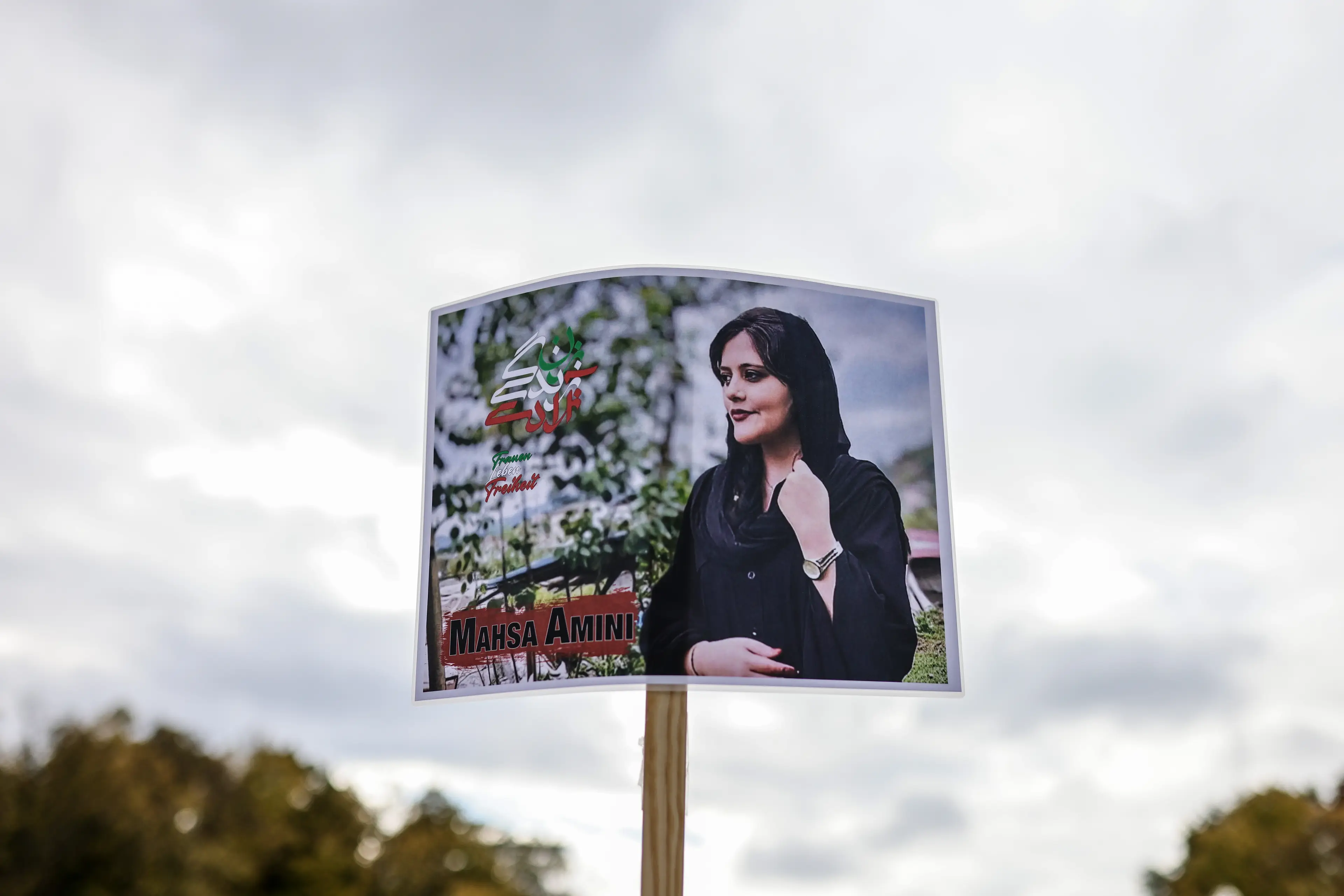
One of the many challenges that refugees face is that they are not allowed to work. This makes them vulnerable to homelessness, as well as exploitation and human trafficking on the black market - as they have no other way to find an income for basic necessities.
Organisation Natakallam works around that by ‘partnering’ with people so they can teach languages remotely.
Co-founder of Natakallam Aline Sara told UNILAD: “Natakallam was originally born with the idea that there is close to a million Syrian refugees in Lebanon who had fled the Civil War.
“In Lebanon, they're not allowed to work for the most part. And this is obviously a situation that is reflective of the wider migrants and forcibly displaced crisis around the world.
“We thought how can we find something that can still give them income but also a sense of purpose and dignity, and then human connection because that's also what Natakallam creates.
“There's a lot of criticism of digital freelance work. But in the refugee context, it actually is a lifeline.”
Iran has seen enormous protests recently, with women and girls taking to the streets following the death of 22-year-old Mahsa Amini in police custody. But for Leila, even if the Islamic Republic were to fall tomorrow, she would not move back there.
She said: “I was just in Germany, 26 months in camps during coronavirus, in six different camps without any rights to study to work, nothing. So I cannot say okay, if tomorrow Iran is free, I want to go back.
“My heart every minute is in Iran. But I passed many things to stay here and I cannot start from zero.”
Topics: News, World News, Iran, Feminism
